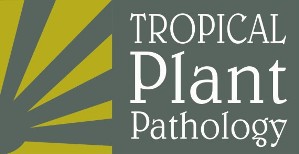Contaminated irrigation water constitutes one of the main sources of plant pathogens that can cause disease and lead to potentially significant production losses in forest nurseries. Recycling of contaminated irrigation water increases the risk of spreading diseases. The objective of this study was to evaluate a simple slow sand filtration treatment of irrigation water as a method for eradicating fungal and bacterial pathogens in eucalypt cutting nurseries. Pilot filter units were constructed from PVC pipes containing a 80 cm high layer of sand with grain size varying from 0.50 to 0.75 mm, drainage layers of 10 cm of fine gravel (4 mm) followed by a 15 cm layer of coarse gravel (8 mm), connected to a water outlet. The PVC pipe had space for a 150 mm water column above the sand layer and the filter had a flow rate of 100 to 300 L m-2 h-1. Eradication of the bacterial pathogen Ralstonia solanacearum, and the fungal pathogens Cylindrocladium candelabrum and Botrytis cinerea through the use of the filter was evaluated. Detection of bacteria in filter-treated irrigation water was performed through the micro drop method followed by PCR of colonies, while fungal pathogens were detected using a castorbean leaf biological bait method. Evaluations were performed daily 35 times for R. solanacearum, 25 times for C. candelabrum and 18 times for B. cinerea during a period of 12 months. After the last evaluation period, samples from various depths of the sand layer in the filters were taken and analyzed for the presence of the plant pathogens. The slow sand filters were able to remove B. cinerea and C. candelabrum spores with 100% efficiency while eradication of R. solanacearum colonies reached up to 99.6%. Colonies of Trichoderma sp. were found predominantly on the all filter layers. The results of this study show that slow sand filters are efficient for recycled water in eucalypt nurseries, especially in eradicating fungal pathogens.
Botrytis cinerea; Cylindrocladium candelabrum; Eucalyptus sp.; Ralstonia solanacearum; eradication



